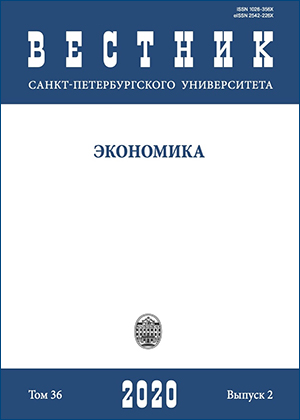Sustainable development of organic agriculture: Strategies of Russia and its regions in context of the application of digital economy technologies
DOI:
https://doi.org/10.21638/spbu05.2020.203Abstract
This paper analyzes the potential of organic agriculture to meet effectively the increasing de- mand for high-quality food, to increase its export potential, and to solve the country’s import substitution problems. The article also reveals the importance of digital economy technologies for increasing the sustainability of organic production. Among the most significant are cloud computing and large databases that contribute to the development of precision farming, continuous online monitoring of the quality of various stages in technological chains, automation and robotization, etc. Following recommendations of the “Organic Agriculture 3.0” conception, the authors examine the appropriate environmental, economic, social, and institutional factors to elaborate complex development strategies for agriculture in Russia and its regions. A special environmental index is proposed to determine environmentally friendly regions that are mostly suitable for organic production. The authors discuss an economic indicator to assess the potential of unused agricultural land for organic farming. The proportion of unemployed working-age population in rural areas serves as a social indicator for the study. By analyzing these selected indicators, four groups of Russian regions with different conditions for developing organic agriculture are identified. With respect to varying potentials of the regions and the external institutional context, the authors qualify different regional competitive strategies and corresponding product niches. The study also provides guidelines for Russian agrarian and environmental policy to support effective development of organic production.
Keywords:
sustainable development, digital economy technologies, organic agriculture 3.0, export potential, supply and demand for organic food, regional priorities, local food supply chains
Downloads
References
References in Latin Alphabet
Downloads
Published
How to Cite
Issue
Section
License
Articles of the St Petersburg University Journal of Economic Studies are open access distributed under the terms of the License Agreement with Saint Petersburg State University, which permits to the authors unrestricted distribution and self-archiving free of charge.






